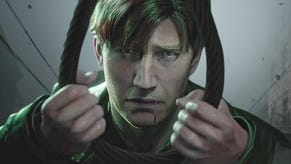Raymond: Splinter Cell popularity held back by its complexity
"Splinter Cell still really is a thinking game."

There is a feeling among executives at Ubisoft that the Splinter Cell video games should be more popular.
The stealth spy action series was for a time one of Ubisoft's premier franchises, but in recent years it has fallen behind the likes of Far Cry and flagship series Assassin's Creed in Ubisoft's IP pecking order.
But why? Jade Raymond, the person in charge of Ubisoft Toronto, the gargantuan Canadian studio created three years ago to developer the next Splinter Cell game, Blacklist, and manage the franchise, has a theory: it's too complex for the modern gamer.
"One of the things that held it back is despite all of the changes that have happened over the years, it's still one of the more complex and difficult games to play," Raymond told Eurogamer.
"Even though we do have core fans who are like, 'Oh, I want to have more of this experience,' when you play any other game that has stealth elements, they're all a lot more forgiving than Splinter Cell.
"I guess Splinter Cell stayed with the most pure approach to that stealth experience."
Even though we do have core fans who are like, 'Oh, I want to have more of this experience,' when you play any other game that has stealth elements, they're all a lot more forgiving than Splinter Cell
Ubisoft Toronto boss Jade Raymond
Splinter Cell achieved almost overnight success with the first game in the series, 2002's Tom Clancy's Splinter Cell. Gamers praised it for its hardcore stealth elements, smart level design and the cool factor of covert ops specialist Sam Fisher.
"The first thing you have to do when you start in a map, even in Conviction, which did go quite a bit more action-oriented than the past, is the planning phase," Raymond said, explaining her point.
"So before entering a room you've got to spend some time thinking, right, so where are the guys positioned? How will I get through here? Where's cover? How do I hide? Okay, I'm going to shoot out those lights. 'This is my strategy' is an important first phase.
"By default there aren't many games where that's the phase. Most games you can walk in and you start shooting right away, or you just walk in and you improvise as you go along.
"But Splinter Cell still really is a thinking game. It's really about being intelligent and taking that time in the first phase to plan out how you're going to do things, and understanding the elements, and even planning your gadgets and your load-out and being smart about it. That's where you get the thrill, but it's a different way of playing than most games on the market these days."
For Splinter Cell: Blacklist, due out in August on PC, PlayStation 3, Wii U and Xbox 360, Ubisoft Toronto tried to offer a "broader range of play", that is, the kind of stealth experience hardcore fans of the series want and the more action-oriented experience Raymond hopes will broaden Splinter Cell's potential audience.
It did this by offering different modes of play. "In this game we do have a broader range of play styles possible than ever before," Raymond said.
"We brought back the purest hardcore version, which is, you want to ghost through the level and get through it without killing a single person. Every single thing you want to do you can do in a non-lethal way. That requires the most planning and being the most strategic.
"You can even play that in Perfectionist Mode, which means if you want you don't have any of the added things, such as Mark and Execute, that make it easier.
"That's for those who want to plan it out and feel really smart, and, 'I'm going to use the Sticky Cam with the Sleeping Gas and them I'm going to whistle and the guy's going to come,' and do the full set-up."
By default, though, Splinter Cell: Blacklist offers a more "fluid, modern play-style", Raymond explained, which helps Fisher navigate the 3D environments without the need for as much interaction on the part of the player.
"You can climb up, do 3D navigation and jump over things without thinking too much or pressing buttons," Raymond said.
"Sam does it automatically. The Killing in Motion, being able to Mark and Execute while moving through the map, makes it much more accessible to more of an action gamer."
You can jump to assumptions only reading what people post on forums.
Splinter Cell: Blacklist's "stealthiness" has been a bone of contention pretty much since the game was announced. Early trailers showed Fisher storming across a Middle Eastern desert in broad daylight, neck-stabbing crowds of armed bad guys in one fell swoop - a far cry from the series' dark and covert roots. But in recent months Ubisoft Toronto has been keen to show Blacklist's more stealthy side with videos that focus on that aspect of the game.
You'd think this switch indicated a knee-jerk reaction to fan feedback, but Raymond said she remains cautious about putting too much stock in online comments.
"There's a big difference between the vocal fans who write things on forums and what the larger base of players think," she said.
"You can jump to assumptions only reading what people post on forums. That can be very different from what you find from user analysis afterwards.
"And even with the user analysis, when you get the bigger data in, there's also a lot of room for misinterpretation."
Raymond experienced data misinterpretation with Assassin's Creed, which she once worked on.
"There was one mission everyone was playing," she said. "We got the data back and it was like, 'You guys need to make more of these missions because there was something about this mission that was great.' You look at it and it's like, 'That's because that was the only side mission you had to do.' It wasn't because it was magically better. It was the one you had to play in the game.
"You have to interpret the data," she continued. "After shipping Conviction, there were a lot of people who said the fans didn't like Mark and Execute. But when we looked at our broader feedback - we do surveys through Uplay and get thousands and thousands of players - the people who rated those new features the highest were actually players who played at least two games in the series before. So in fact it was the opposite of what the data was telling us.
"So even though there were some vocal fans who felt a certain way and we would go, 'Okay, right, we're never doing that again,' the broader data told us a different story.
"The reality is, that was very appreciated, but there were also some things fans were missing. They didn't really dislike that new feature. The real grumbling, when you dig deep, was that there were a couple of other things they were missing, not that that wasn't appreciated.
"You do have to pay attention to all that stuff. It's easy to jump to conclusions."
To me, Splinter Cell is one of the most exciting franchises we have at Ubisoft.
While Blacklist's success remains to be seen, Raymond insists Splinter Cell has all the ingredients to be as popular as Assassins' Creed - or any of the game industry's biggest franchises.
"To me, Splinter Cell is one of the most exciting franchises we have at Ubisoft," she said. "The promise of the main character and what you get to do is a big part of what makes a game compelling. The promise of being a special ops agent is a really cool one. Splinter Cell owns that and the realistic version of that."
Raymond said that post-9/11, game designers had the opportunity to "redefine" the spy genre - and Splinter Cell fits in with this vision perfectly.
"It's no longer about tailing people and eavesdropping," she said. "The reality of what a modern spy is post-9/11 is really in-line with Splinter Cell and Tom Clancy and the gadgets and what's going on on the information side of things, which is at the roots of the game.
"So we're in a really good position."
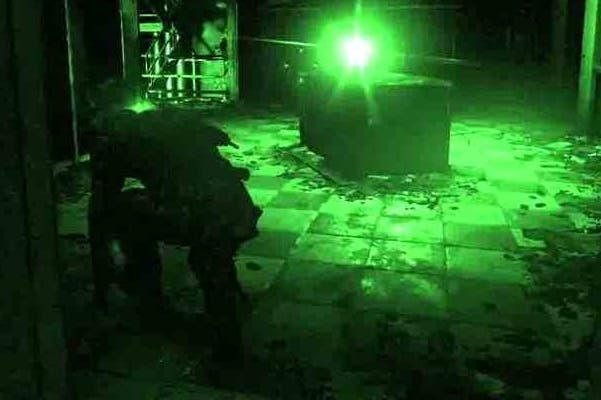



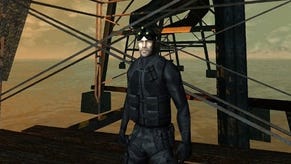
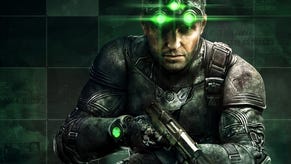
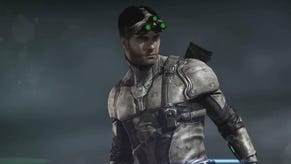



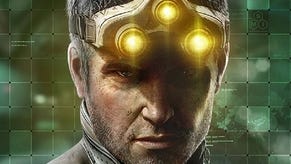
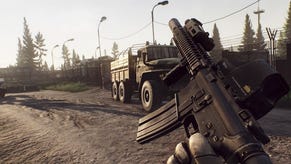

.png?width=291&height=164&fit=crop&quality=80&format=jpg&auto=webp)




